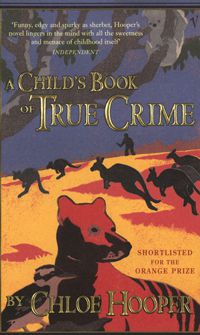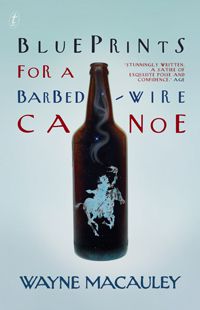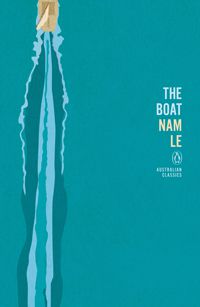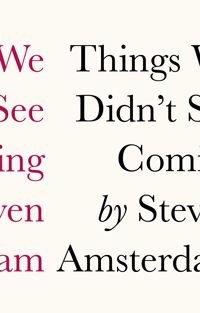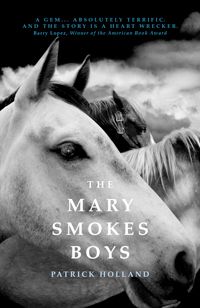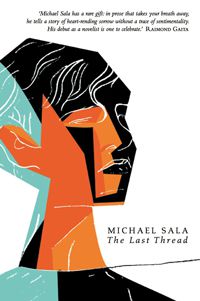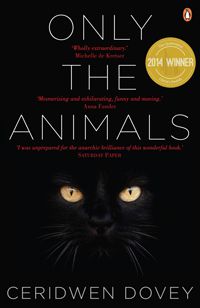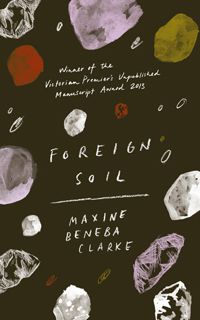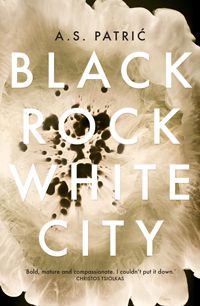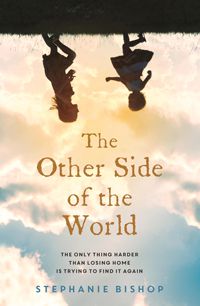When my colleague Bronte asked me to write a list of my ‘ten favourite books published over the course of my career at Readings’, I admit that I (audibly) groaned. How on earth was I going to be able to recall 21-years’ worth of books? It didn’t help that my personal library was already packed up in boxes pending the arrival of the container to ship all my possessions off to my new life in Germany!
Then we started to talk about Ozlit and the debuts that I invariably seem to gravitate to. I suspect this tendency is partly due to the particular thrill I’ve experienced as I’m reading a first book by an unknown author and – after a certain point in the book – it starts to dawn on me that I’m holding something really special in my hands. Being in the wonderful position to evangelise about the book’s quality (either in a formal review, or more latterly, via a whole lot of twitter love!) has been one of the most satisfying aspects of my role at Readings over the years.
So the below is just a select list. If space permitted, there would be mention of Romy Ash, John A Scott, Ellen van Neerven, Robert Gott, and many, many more – so, this is certainly not a definitive list of the best books written in the period. Rather, here are some of the books that meant a lot to me at the time of reading them, and that I still urge upon people today, if given half the opportunity.
A Child’s Book of True Crime by Chloe Hooper
This book is from way back in 2002, and I have some memory of opinion being divided over this much-touted debut book from Hooper, particularly about the sections that included animal narrators. My strongest memory though is simply being heartily impressed by the risks that were taken in this book. Ambition in fiction always gets a big tick from me, and this book delivers in spades. As Kerryn Goldsworthy noted at the time of the book’s release: ‘There’s a confidence and imagination in the writing that you rarely see in a first novel.’ Years later, of course, Hooper wrote the non-fiction classic, The Tall Man, about which I could also wax lyrical. I intend to read every word Hooper ever writes, and A Child’s Book of True Crime was a terrific way to begin that reading journey.
Blueprints for a Barbed-wire Canoe by Wayne Macauley (2004, republished 2012)
I’ve been thinking of Macauley’s second novel, Caravan Story, lately as it is remarkably prescient of our current Brandisean arts regime. (It’s a must-read, as are all his other equally masterful works.) What got me started on Macauley was a very slender black-spined little novel that appeared in 2004 called Blueprints for a Barbed-wire Canoe. It was published by a little house (in fact cottage would be a better descriptor) called Black Pepper. I don’t remember how the book came to my attention back then but I do remember the week that followed my discovery of it. I was stunned by its hypnotic prose and exquisite satirical conceit, and so investigated the author. I noticed (with regret) that the launch of the book had already been held, and at none other than Readings Carlton. I could still recall that night too, faintly, with a good crowd of people assembled for an author that I knew nothing about. So off home I went … and missed the launch of a book that’s became one of my favourites of the decade.
The Boat by Nam Le (2008)
I think the publication of The Boat must have marked some sort of watershed for local publishing. Its considerable commercial success made that previously much-neglected species in OzLit – the short-story collection – something that publishers were prepared to consider more positively than they ever had in the past. These days, collections have become a regular staple of our publishing calendar. Now, I must admit that it was partly my anguish about what I presumed would be the fate of this book that made me so determined to try and make it a success. I ordered 500 copies up-front (a cooler head would have suggested 30, or at the most, 50) and, well, the rest is history. Of course I eagerly await the promised debut novel from Le …
Things We Didn’t See Coming by Steven Amsterdam (2009)
Amsterdam is the author of two books now (with a third rumoured to be on the horizon) but this, his first, was the one that rocked my world in 2009. I actually wrote in my review at the time: ‘Who would have seen coming – so soon after the super-nova that was Nam Le in the Australian literary firmament in 2008 – that already in early 2009 we would be blessed with another debut of the most sublime conception and tender execution?’ I now also note that I said that Things We Didn’t See Coming was ‘bound’ to become a contemporary classic and, after many years on the VCE list, it’s really pleasing to see that we still regularly sell a copy or two of it every month.
The Mary Smokes Boys by Patrick Holland (2010)
Another year, another star. Again I turn to my review, where I called The Mary Smokes Boys: ‘a beautiful beautiful novel … that has a language as pure and magical as I have read in a long time’. This was actually Holland’s second novel but the first I came across, and he’s gone on to write a further four books, both fiction and non-fiction. His is a career I watch with much interest because I’m convinced that one day, Holland will write a book that breaks him out on an international scale. The Mary Smokes Boys could have/should have been it, but its lack of international recognition is perhaps forgivable as I think there’ll be even better work still to come.
The Last Thread by Michael Sala (2012)
In 2013, I had the wonderful privilege of being a judge on the Commonwealth Writer’s Prize. Of all the longlisted books for the Oceania region, there was one I immediately knew I’d be pushing as a favourite at Readings: Sala’s terribly moving debut The Last Thread. I was overjoyed to find my fellow judges agreed with me, and we awarded Sala the Regional Prize for that year. In my review from 2012 I wrote: ‘A gutsy, moving, beautifully wrought and utterly compelling work … a hymn to love that I don’t think will be forgotten by any reader’. Needless to say, I was excited to hear Sala has a new novel coming out with Text Publishing in 2016.
Only the Animals by Ceridwen Dovey (2014)
I probably don’t need to say too much about this, the 2014 winner of the Readings New Australian Writing Prize. There’s nothing I like more than a book that at first makes me scratch my head (‘What on earth is this?’), before I start to understand (and marvel at) the tremendous fictional accomplishment in my hands. I think Michelle de Kretser put it best when she described Only the Animals: ‘Wholly extraordinary’. As with all the other writers here, this is another author whose next book I will be waiting for with much anticipation. (Note to self: You still haven’t checked out her first novel, Blood Kin. Luckily, you have some free time coming up …)
Foreign Soil by Maxine Beneba Clarke (2014)
When I first reviewed Clarke’s much-lauded debut, pre-publication, I said, ‘these are tales of sheer storytelling prowess’, and it’s enormously gratifying to see the huge response there’s been to the collection. What makes me especially pleased is that I also said that Foreign Soil’s publication marked ‘the arrival of a major new voice in the Australian literary landscape’, and already, barely a year after publication, Clarke feels like she’s been around for years. She’s such a boon for Australian literary culture with her passion (and compassion) for the issues that move her; that she can write like a dream is all the better for us. Her forthcoming memoir, The Hate Race, is bound to be one of the most talked-about books of 2016.
Black Rock White City by A.S. Patric (2015)
I came to A.S. Patric’s book with a dreadfully guilty conscience – despite Alec being a Readings staffer of many years, I was yet to read a word of his work. All that changed this year when I decided that now was the time. To say that I devoured Black Rock White City is no understatement, and when you look around and see all the laudatory reviews it’s been receiving, it’s clear that I was not alone. Virtually every reader has been struck by the book’s exceptional prose, moving subject matter and thriller-like plot. I’ve gone on the record to say that if this is not on the Miles Franklin shortlist next year, there must be a riot!
The Other Side of the World by Stephanie Bishop (2015)
Finally, I’m really thrilled that in the last month of my career at Readings there are two exceptional Australian fiction releases appearing. One is Antonia Hayes’ debut novel, Relativity – PLEASE don’t miss it! The other is Stephanie Bishop’s second novel, The Other Side of the World, which impressed me as much as any of the other novels I’ve talked about here. Indeed I was talking about the Miles Franklin just then and this book (along with Hayes’) are bound to be going head-to-head in all the major prizes over the next year. My advice is to read both of them as soon as you can.


